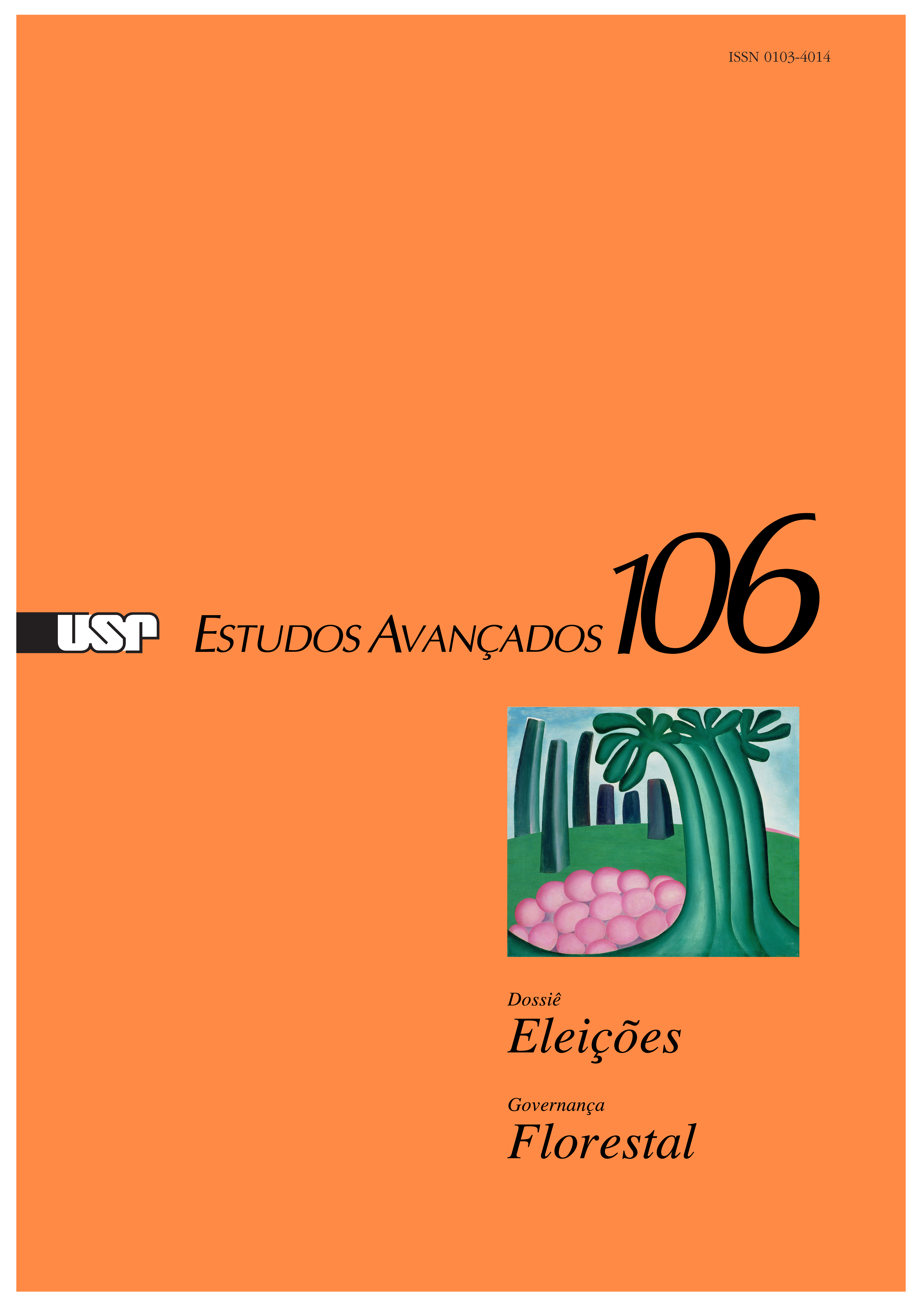Parties dominate the registration of candidates, leaders connect better with the electorate
DOI:
https://doi.org/10.1590/s0103-4014.2022.36106.004Keywords:
Personalism, Partisanship, Leadership, Political parties, Electoral processAbstract
By analyzing mayoral elections in Brazil between 2000 and 2020, we aim to identify the role of political parties and party leaders in structuring the electoral process. We evaluate two stages of the elections. Focusing on how candidates are defined for the election, we verified a stronger presence of the same parties that launched candidacies in two consecutive elections. Adopting the same criteria to assess the continuity of the same leaders, the dropout rate is higher. When voting in the second election, voters evaluate the parties and leaderships that launch their candidacies in different constellations. Results show that leaderships manage to retain voters more than political parties. The study provides empirical evidence of the degree of election partisanship and personalization in Brazil. It also contributes to the debate on conceptual definitions, on the elaboration of survey designs and the operationalization of indicators regarding personalism in politics.
Downloads
References
AARTS, K.; BLAIS, A.; SCHMITT, H. (Org.) Party Leader Effects on the Vote. Oxford University Press, 2013.
CAIN, B.; FEREJOHN, J.; FIORINA, M. The Personal Vote. Constituency Service and Electoral Independence. Harvard University Press, 1987.
CAREY, J. M.; SHUGART, M. S. Incentives to cultivate a personal vote: A rank ordering of electoral formulas. Electoral Studies, v.14, n.4, p.417-39. 1995. https://doi.org/10.1016/0261-3794(94)00035-2
FAGANELLO, M. A.; FERNANDES, J. L. M. Migração partidária nos municípios brasileiros (2000-2016). Revista de Sociologia e Política, v.26, n.66, p.101-24, 2018. https://doi.org/10.1590/1678-987318266605
FOWLER, A.; HALL, A. B. Disentangling the Personal and Partisan Incumbency Advantages: Evidence from Close Elections and Term Limits. Quarterly Journal of Political Science, v.9, n.4, p.501-31, 2014. https://doi.org/10.1561/100.00014013
GARZIA, D. The Rise of Party/Leader Identification in Western Europe. Political Research Quarterly, v.66, n.3, p.533-44, 2013. https://doi.org/10.1177/1065912912463122
GUNTHER, R.; DIAMOND, L. Species of Political Parties: A New Typology. Party Politics, v.9, n.2, p.167-99, 2003. https://doi.org/10.1177/13540688030092003
HOLSTEYN, J. J. M. van; ANDEWEG, R. B. Demoted leaders and exiled candidates: Disentangling party and person in the voter’s mind. Electoral Studies, v.29, n.4, p.628–35, 2010. https://doi.org/10.1016/j.electstud.2010.06.003.
HUNTINGTON, S. P. A terceira onda: A democratização no final do século XX. São Paulo: Ática, 1994.
LANGER, A. I. A Historical Exploration of the Personalisation of Politics in the Print Media: The British Prime Ministers (1945–1999). Parliamentary Affairs, v.60, n.3, p.371-87, 2007. https://doi.org/10.1093/pa/gsm028
LOBO, M. C.; CURTICE, J. (Org.) Personality Politics?: The Role of Leader Evaluations in Democratic Elections. Oxford University Press, 2015.
MAINWARING, S.; TORCAL, M. Party system institutionalization and party system theory after the third wave of democratization. In: KATZ, R. S.; CROTTY, W. J. (Org.) Handbook of Party Politics. Sage, 2006. p.204-27.
MAYHEW, D. R. Congress: The Electoral Connection. Yale University Press, 1974.
MCALLISTER, I. The Personalization of Politics. In: DALTON, R. J.; KLINGEMANN, H. D. (Org.) The Oxford Handbook of Political Behavior. Oxford University Press, 2007. Disponível em: <http://www.oxfordhandbooks.com/view/10.1093/oxfordhb/9780199270125.001.0001/oxfordhb-9780199270125-e-030>.
MUSELLA, F. Political Leaders Beyond Party Politics. Springer, 2017.
SCARROW, S. E. Implementing Intra-Party Democracy. Political Parties and Democracy in Theoretical and Practical Perspective, 2005. Disponível em: <http://kasyp.net/fileadmin/kasyp_files/Documents/reused/PP_Political_Finance_Policy_Parties___Democratic_Develpt_Michael_Johnston.pdf>
VAN HOLSTEYN, J. J. M.; ANDEWEG, R. B. Demoted leaders and exiled candidates: Disentangling party and person in the voter’s mind. Electoral Studies, v.29, n.4, p.628-35, 2010. https://doi.org/10.1016/j.electstud.2010.06.003
ZITTEL, T. The Personal Vote. In: The SAGE Handbook of Electoral Behaviour. SAGE Publications Ltd., 2017. v.2 (v.1–2, p.668-85). https://doi.org/10.4135/9781473957978.
Downloads
Published
Issue
Section
License
Copyright (c) 2022 Bruno Wilhelm Speck

This work is licensed under a Creative Commons Attribution-NonCommercial 4.0 International License.
Estudos Avançados não celebra contrato de cessão de direitos autorais com seus colaboradores, razão pela qual não detém os direitos autorais dos artigos publicados. Os interessados em reproduzir artigos publicados na revista devem necessariamente obter o consentimento do autor e atribuir devidamente os créditos ao periódico.


